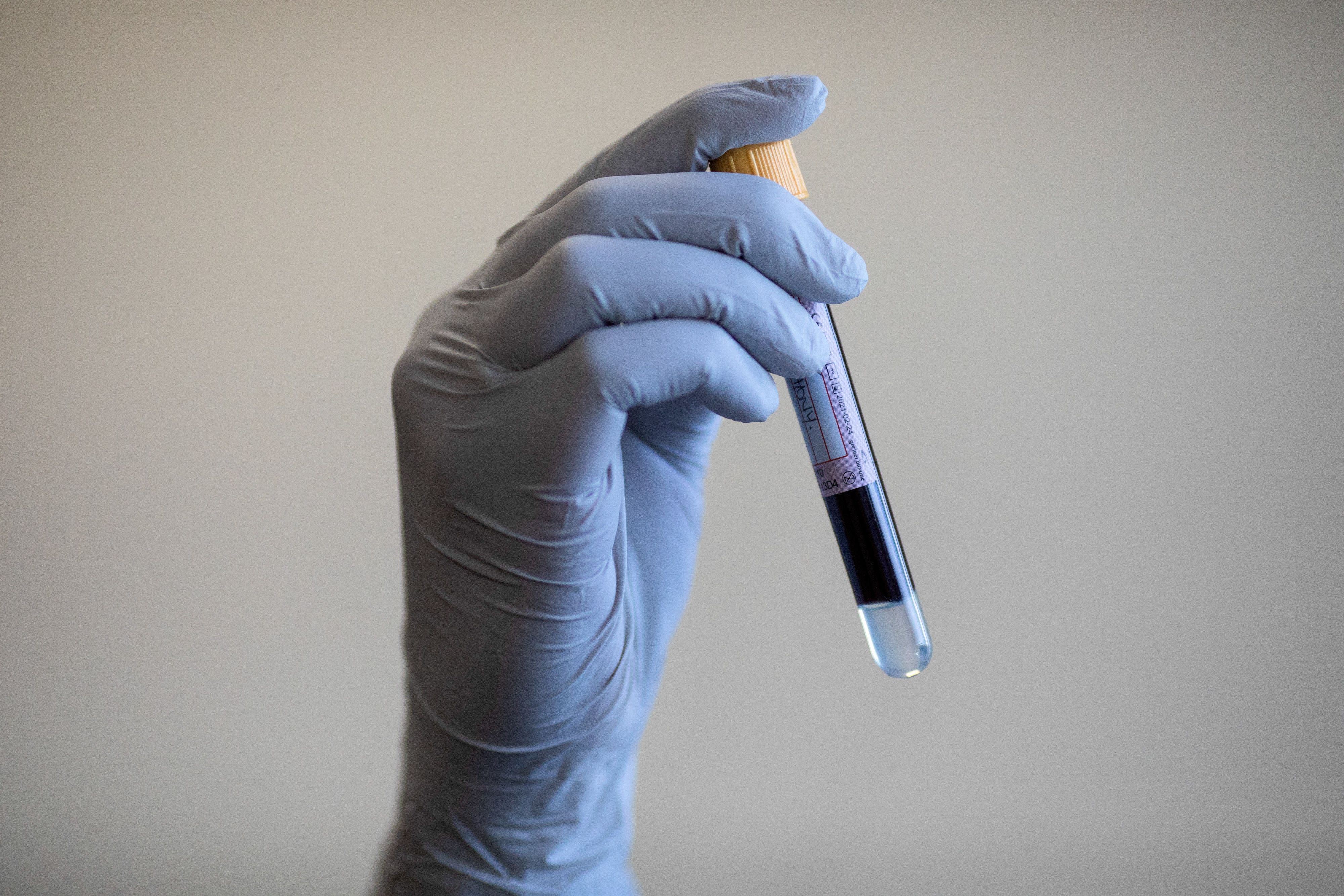Blood test ‘could detect breast cancer up to two years before diagnosis’
Researchers say findings could ‘form the basis of blood testing for people with a genetic predisposition or a family history of breast cancer’

A simple blood test that looks for changes in a group of proteins could detect breast cancer up to two years before diagnosis, according to scientists.
Experts have identified a type of blood test that focuses on a set of six proteins that may be at higher or lower levels up to two years prior to breast cancer diagnosis.
The researchers said their findings, presented at the 13th European Breast Cancer Conference, could “form the basis of blood testing for people with a genetic predisposition or a family history of breast cancer” to ensure early diagnosis and treatment.
The Trial Early Serum Test Breast cancer (TESTBREAST) study includes 1,174 women in the Netherlands who are at a high risk of breast cancer, due to their family history or because they carry gene variants associated with a higher risk of breast cancer.
Blood tests are relatively simple and not particularly painful for most people, so people could be offered screening as often as needed
As part of the study, which has been running for 10 years, the women have been attending regular breast screenings and giving blood samples.
The researchers used a technique, known as mass spectometry, to analyse the proteins in the blood samples.
An analysis of 30 blood samples – taken over time from three women who have been diagnosed with breast cancer and three women who have not – showed changes in the levels of a set of six proteins.
Sophie Hagenaars, from Leiden University Medical Center in The Netherlands, who presented the findings, said: “These proteins could form the basis for a blood test for early detection of breast cancer in women at a higher risk.
“It’s important to note that we found more variation in the protein levels in the blood samples between women, compared to over time within the same woman who developed breast cancer.
“This shows that testing should probably be based both on proteins that differ between women with and without breast cancer and on proteins that alter in an individual person over time.”
The researchers plan to investigate their findings with a larger cohort as part of their TESTBREAST study.
Ms Hagenaars said: “If further research validates our findings, this testing could be used as an add-on to existing screening techniques.
“Blood tests are relatively simple and not particularly painful for most people, so people could be offered screening as often as needed.”





